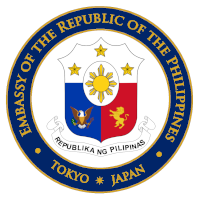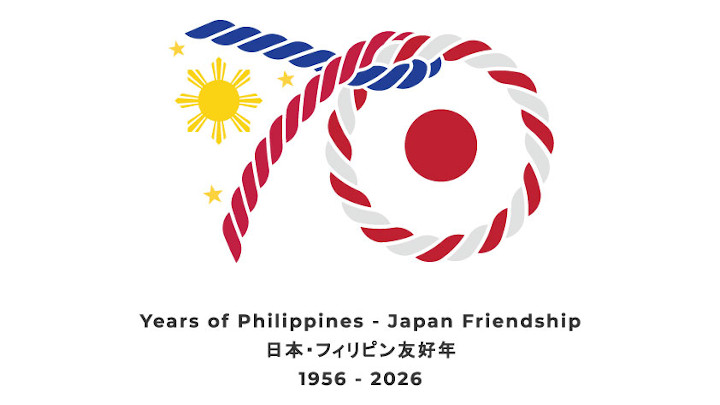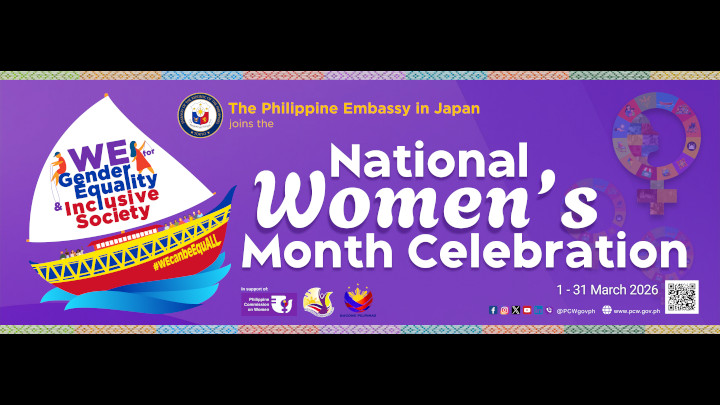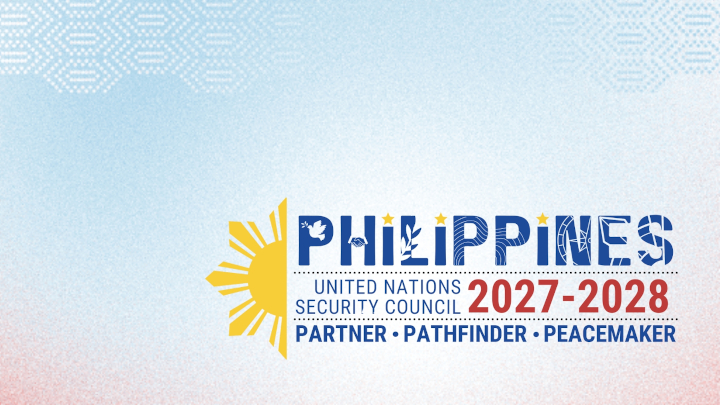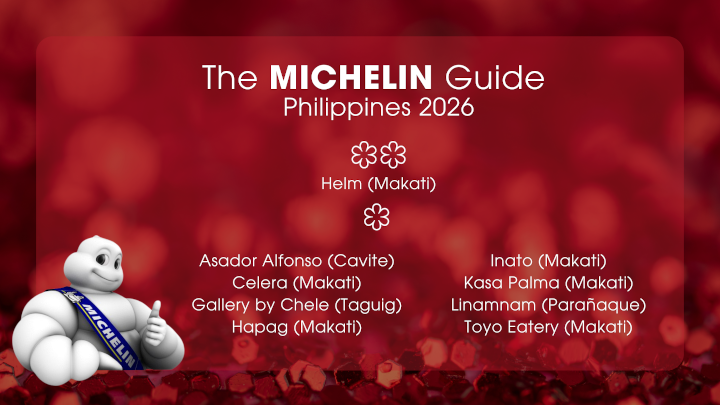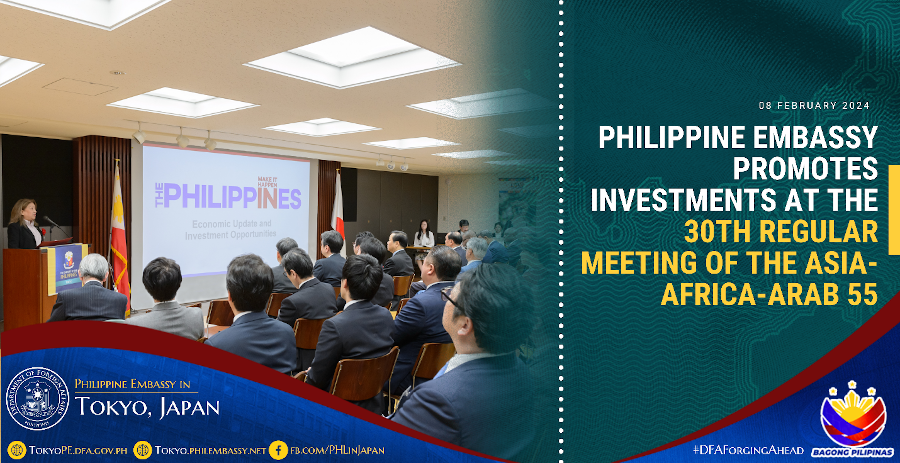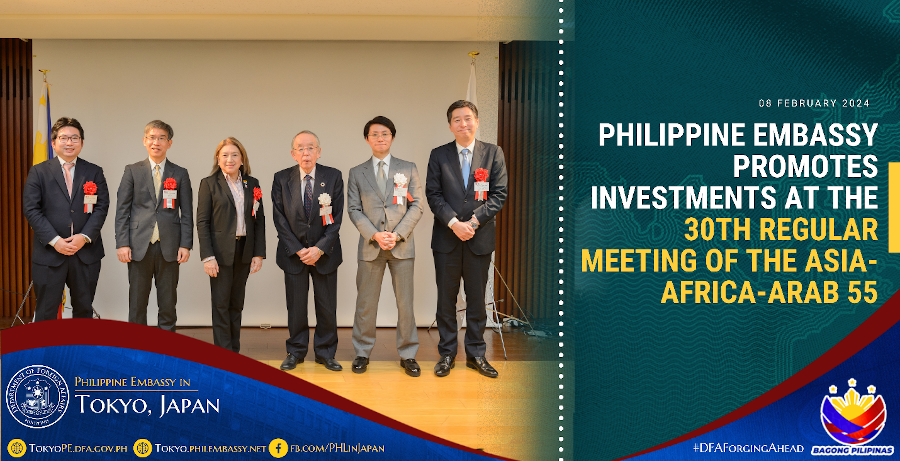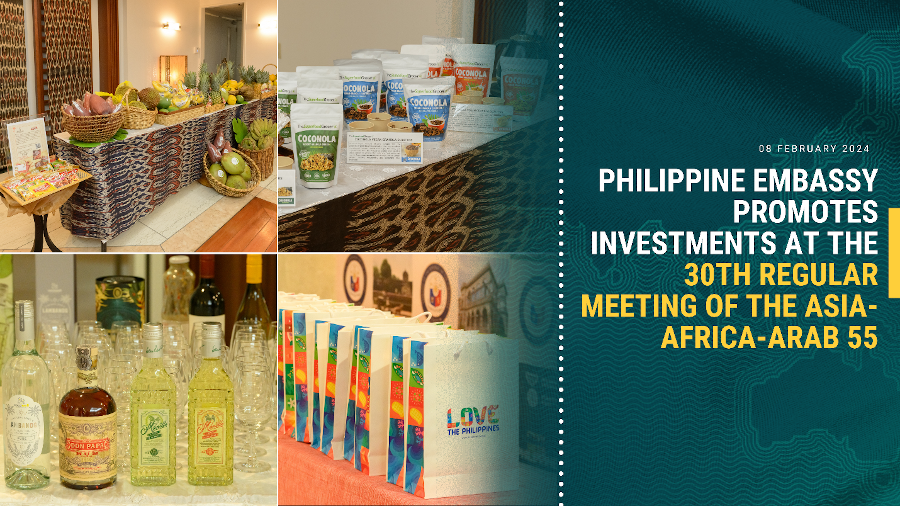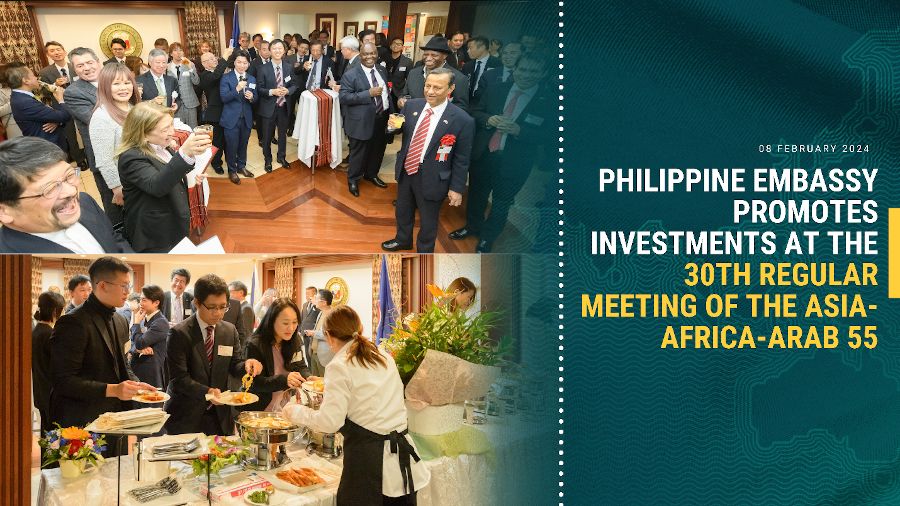Philippine Embassy Promotes Investments at the 30th Regular Meeting of the Asia-Africa-Arab 55
The Philippine Embassy hosted the 30th Regular Meeting of the Asia-Africa-Arab 55 last 8 February 2023 which was attended by around 100 participants from Japanese companies and members of the diplomatic corps, including Ambassadors from Asia, Africa and the Middle East. Mr. Hisafumi Koga, Chairman of the Board of Directors of AAA55, welcomed the participants to the event.
In her opening remarks, Ambassador Mylene J. Garcia Albano underscored the opportunities presented by the growth trajectory of the Philippines amid global uncertainties. She highlighted the Philippines’ strong economic ties with Japan which is already one of the Philippines’ leading investment partners, but also emphasized that there is much potential that can still be unlocked.
Adding to the Ambassador’s message, the Philippine Trade and Investment Center (PTIC-Tokyo) presented about the Philippines’ stable macroeconomic fundamentals and favorable investment climate brought about by game-changing economic reforms, and emphasized the Philippines’ comparative advantages with its rich talent pool, competitive human resource costs, strategic access to key markets, IT infrastructure, and intellectual property protection, among others.
JETRO and JICA representatives also gave keynote presentations on their perspectives about the economic opportunities in the Philippines. Director-General Isamu Wakamatsu of JETRO’s Research and Analysis Department highlighted the increased business confidence of Japanese companies in the Philippines post-pandemic, supported by the Philippines’ strategic advantages such as ease of communication, low labor costs, market scale and growth potential, availability of human resources and tax incentives. He also shared about investment trends and opportunities in various sectors such as in electronics, IT-BPM services, automotive manufacturing, consumer goods and services, infrastructure development and renewable energy projects, real estate development and investments in the financial sector.
For his part, Director-General Yuho Hayakawa of JICA’s Southeast Asia and Pacific Department premised his presentation on the high-trust of Filipinos towards Japan which is crucial in promoting a mutually beneficial relationship between the two countries now and into the future. With Japan as the Philippines’ top bilateral ODA partner, he underscored JICA’s development work in the Philippines, including in Mindanao, in efforts to support the country in achieving its socio-economic objectives and growth potential. JICA’s development assistance is doubly significant as the country prepares to become an Upper-Middle Income Country (UMIC) in the next few years, with demographic dividends anticipated to fuel more economic growth. He also highlighted various opportunities for public-private partnerships in areas such as infrastructure development, disaster preparedness, renewable energy, ICT and logistics, among others.
Representing the private sector, Mr. Shohei Sugita of the Global HR Strategy, gave a presentation about Japan’s labor market, the urgent need for foreign workers to sustain Japan’s economic growth, and the policies, initiatives and reforms the Japanese government is undertaking to address its labor shortage. Filipinos represent the third largest group of foreign workers in Japan, after the Vietnamese and Chinese.
After the presentations, the participants were treated to a Filipino feast, featuring favorites such as adobo, sisig, caldereta, lumpia, turon and leche flan. Filipino drinks such as calamansi juice, beer, lambanog and rhum where also served. There were also mini-exhibits mounted by the Embassy’s partner agencies: PTIC-Tokyo featured Philippine specialty coffee and coconut products; DA-Japan featured Philippine tropical fruits such as bananas, pineapple, papaya, and durian; and DOT-Japan featured Philippine tourism destinations.
The Asia-Africa-Arab 55 is a platform for Japanese companies to consider developing businesses along with other fast-growing Asian, African and Arab countries through regular exchanges between ambassadors and member companies. Currently, there are 45 participating countries from Asia, Africa and the Middle East, with a growing number of member companies.
